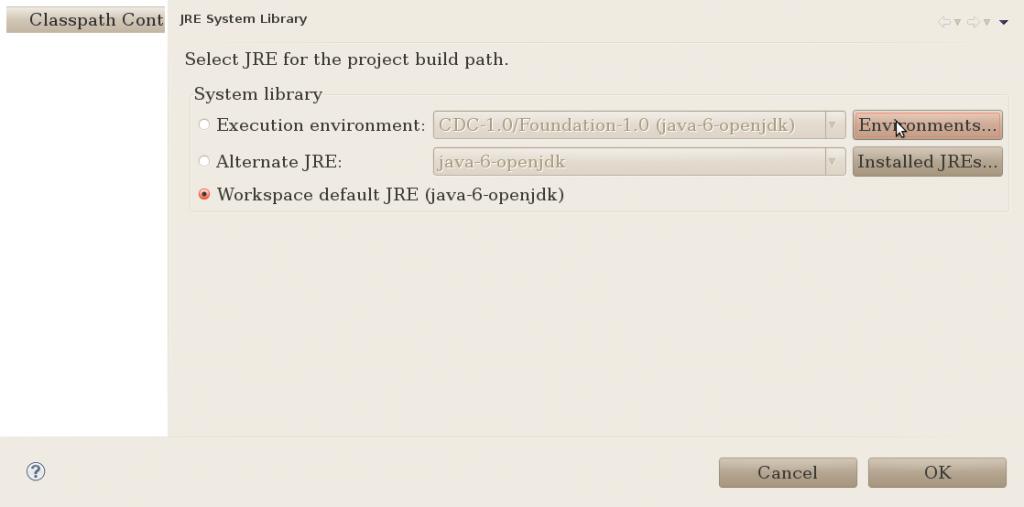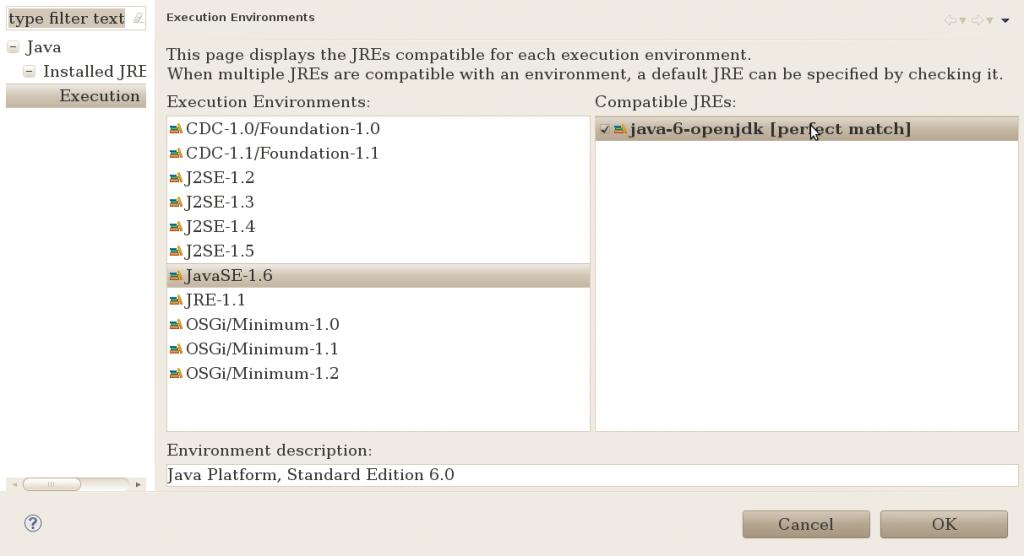转载自http://blog.csdn.net/logic_nut/archive/2009/10/22/4711489.aspx
推荐看看:http://www.math.ucla.edu/~tom/
学习理论在这里:http://www.math.ucla.edu/~tom/Game_Theory/Contents.html
博弈问题
若你想仔细学习博弈论,我强烈推荐加利福尼亚大学的Thomas S.
Ferguson教授精心撰写并免费提供的这份教材,它使我受益太多。(如果你的英文水平不足以阅读它,我只能说,恐怕你还没到需要看“博弈论”的时 候。)
Nim游戏是博弈论中最经典的模型(之一?),它又有着十分简单的规则和无比优美的结论,由这个游戏开始了解博弈论恐怕是最合适不过了。
Nim游戏是组合游戏(Combinatorial Games)的一种,准确来说,属于“Impartial Combinatorial
Games”(以下简称ICG)。满足以下条件的游戏是ICG(可能不太严谨):1、有两名选手;2、两名选手交替对游戏进行移动(move),每次一
步,选手可以在(一般而言)有限的合法移动集合中任选一种进行移动;3、对于游戏的任何一种可能的局面,合法的移动集合只取决于这个局面本身,不取决于轮
到哪名选手操作、以前的任何操作、骰子的点数或者其它什么因素;
4、如果轮到某名选手移动,且这个局面的合法的移动集合为空(也就是说此时无法进行移动),则这名选手负。根据这个定义,很多日常的游戏并非ICG。例如
象棋就不满足条件3,因为红方只能移动红子,黑方只能移动黑子,合法的移动集合取决于轮到哪名选手操作。
通常的Nim游戏的定义是这样的:有若干堆石子,每堆石子的数量都是有限的,合法的移动是“选择一堆石子并拿走若干颗(不能不拿)”,如果轮到某个人时所
有的石子堆都已经被拿空了,则判负(因为他此刻没有任何合法的移动)。
这游戏看上去有点复杂,先从简单情况开始研究吧。如果轮到你的时候,只剩下一堆石子,那么此时的必胜策略肯定是把这堆石子全部拿完一颗也不给对手剩,然后
对手就输了。如果剩下两堆不相等的石子,必胜策略是通过取多的一堆的石子将两堆石子变得相等,以后如果对手在某一堆里拿若干颗,你就可以在另一堆中拿同样
多的颗数,直至胜利。如果你面对的是两堆相等的石子,那么此时你是没有任何必胜策略的,反而对手可以遵循上面的策略保证必胜。如果是三堆石子……好像已经
很难分析了,看来我们必须要借助一些其它好用的(最好是程式化的)分析方法了,或者说,我们最好能够设计出一种在有必胜策略时就能找到必胜策略的算法。
定义P-position和N-position,其中P代表Previous,N代表Next。直观的说,上一次move的人有必胜策略的局面是P-
position,也就是“后手可保证必胜”或者“先手必败”,现在轮到move的人有必胜策略的局面是N-position,也就是“先手可保证必
胜”。更严谨的定义是:1.无法进行任何移动的局面(也就是terminal position)是P-position;2.可以移动到P-
position的局面是N-position;3.所有移动都导致N-position 的局面是P-position。
按照这个定义,如果局面不可能重现,或者说positions的集合可以进行拓扑排序,那么每个position或者是P-position或者是N-
position,而且可以通过定义计算出来。
以Nim游戏为例来进行一下计算。比如说我刚才说当只有两堆石子且两堆石子数量相等时后手有必胜策略,也就是这是一个P-position,下面我们依靠
定义证明一下(3,3)是一个P-position。首先(3,3)的子局面(也就是通过合法移动可以导致的局面)有(0,3)(1,3)(2,3)(显
然交换石子堆的位置不影响其性质,所以把(x,y)和(y,x)看成同一种局面),只需要计算出这三种局面的性质就可以了。
(0,3)的子局面有(0,0)、(0,1)、(0,2),其中(0,0)显然是P-position,所以(0,3)是N-position(只要找到 一个是P-
position的子局面就能说明是N-position)。(1,3)的后继中(1,1)是P-position(因为(1,1)的唯一子局 面(0,1)是N-
position),所以(1,3)也是N-position。同样可以证明(2,3)是N-position。所以(3,3)的所有 子局面都是N-
position,它就是P-position。通过一点简单的数学归纳,可以严格的证明“有两堆石子时的局面是P-position当且
仅当这两堆石子的数目相等”。
根据上面这个过程,可以得到一个递归的算法——对于当前的局面,递归计算它的所有子局面的性质,如果存在某个子局面是P-position,那么向这个子
局面的移动就是必胜策略。当然,可能你已经敏锐地看出有大量的重叠子问题,所以可以用DP或者记忆化搜索的方法以提高效率。但问题是,利用这个算法,对于
某个Nim游戏的局面(a1,a2,…,an)来说,要想判断它的性质以及找出必胜策略,需要计算O(a1a2…*an)个局面的性质,不管
怎样记忆化都无法降低这个时间复杂度。所以我们需要更高效的判断Nim游戏的局面的性质的方法。
直接说结论好了。(Bouton’s Theorem)对于一个Nim游戏的局面(a1,a2,…,an),它是P-
position当且仅当a1a2…an=0,其中表示异
或(xor)运算。怎么样,是不是很神奇?我看到它的时候也觉得很神奇,完全没有道理的和异或运算扯上了关系。但这个定理的证明却也不复杂,基本上就是按
照两种position的证明来的。
根据定义,证明一种判断position的性质的方法的正确性,只需证明三个命题: 1、这个判断将所有terminal position判为P-
position;2、根据这个判断被判为N-position的局面一定可以移动到某个P-position;3、根据这个判 断被判为P-
position的局面无法移动到某个P-position。
第一个命题显然,terminal position只有一个,就是全0,异或仍然是0。
第二个命题,对于某个局面(a1,a2,…,an),若a1a2…^an!=0,一定存在某个合法的移动,将ai改变成ai’后满足
a1a2…ai’…an=0。不妨设a1a2…an=k,则一定存在某个ai,它的二进制表示在k的最高位上是1(否则k的
最高位那个1是怎么得到的)。这时aik<ai一定成立。则我们可以将ai改变成ai’=aik,此时
a1a2…ai’…an=a1a2…an^k=0。
第三个命题,对于某个局面(a1,a2,…,an),若a1a2…^an=0,一定不存在某个合法的移动,将ai改变成ai’后满足
a1a2…ai’…an=0。因为异或运算满足消去率,由a1a2…an=a1a2…ai’…^an可以得
到ai=ai’。所以将ai改变成ai’不是一个合法的移动。证毕。
根据这个定理,我们可以在O(n)的时间内判断一个Nim的局面的性质,且如果它是N-position,也可以在O(n)的时间内找到所有的必胜策略。
Nim问题就这样基本上完美的解决了。
在下一节“Sprague-Grundy函数”中,我们将面对更多与Nim游戏有关的变种,还会看到Nim游戏的a1a2…^an这个值更广泛的
意义。敬请期待。
上一期的文章里我们仔细研究了Nim游戏,并且了解了找出必胜策略的方法。但如果把Nim的规则略加改变,你还能很快找出必胜策略吗?比如说:有n堆石
子,每次可以从第1堆石子里取1颗、2颗或3颗,可以从第2堆石子里取奇数颗,可以从第3堆及以后石子里取任意颗……这时看上去问题复杂了很多,但相信你
如果掌握了本节的内容,类似的千变万化的问题都是不成问题的。
现在我们来研究一个看上去似乎更为一般的游戏:给定一个有向无环图和一个起始顶点上的一枚棋子,两名选手交替的将这枚棋子沿有向边进行移动,无法移动者判
负。事实上,这个游戏可以认为是所有Impartial Combinatorial
Games的抽象模型。也就是说,任何一个ICG都可以通过把每个局面看成一个顶点,对每个局面和它的子局面连一条有向边来抽象成这个“有向图游戏”。下
面我们就在有向无环图的顶点上定义Sprague-Garundy函数。
首先定义mex(minimal excludant)运算,这是施加于一个集合的运算,表示最小的不属于这个集合的非负整数。例如mex{0,1,2,4}=3、
mex{2,3,5}=0、mex{}=0。
对于一个给定的有向无环图,定义关于图的每个顶点的Sprague-Garundy函数g如下:g(x)=mex{ g(y) | y是x的后继 }。
来看一下SG函数的性质。首先,所有的terminal
position所对应的顶点,也就是没有出边的顶点,其SG值为0,因为它的后继集合是空集。然后对于一个g(x)=0的顶点x,它的所有后继y都满足
g(y)!=0。对于一个g(x)!=0的顶点,必定存在一个后继y满足g(y)=0。
以上这三句话表明,顶点x所代表的postion是P-position当且仅当g(x)=0(跟P-positioin/N-position的定义的
那三句话是完全对应的)。我们通过计算有向无环图的每个顶点的SG值,就可以对每种局面找到必胜策略了。但SG函数的用途远没有这样简单。如果将有向图游
戏变复杂一点,比如说,有向图上并不是只有一枚棋子,而是有n枚棋子,每次可以任选一颗进行移动,这时,怎样找到必胜策略呢?
让我们再来考虑一下顶点的SG值的意义。当g(x)=k时,表明对于任意一个0<=i<k,都存在x的一个后继y满足g(y)=i。也就是
说,当某枚棋子的SG值是k时,我们可以把它变成0、变成1、……、变成k-1,但绝对不能保持k不变。不知道你能不能根据这个联想到Nim游戏,Nim
游戏的规则就是:每次选择一堆数量为k的石子,可以把它变成0、变成1、……、变成k-1,但绝对不能保持k不变。这表明,如果将n枚棋子所在的顶点的
SG值看作n堆相应数量的石子,那么这个Nim游戏的每个必胜策略都对应于原来这n枚棋子的必胜策略!
对于n个棋子,设它们对应的顶点的SG值分别为(a1,a2,…,an),再设局面(a1,a2,…,an)时的Nim游戏的一种必胜策略是把
ai变成k,那么原游戏的一种必胜策略就是把第i枚棋子移动到一个SG值为k的顶点。这听上去有点过于神奇——怎么绕了一圈又回到Nim游戏上了。
其实我们还是只要证明这种多棋子的有向图游戏的局面是P-position当且仅当所有棋子所在的位置的SG函数的异或为0。这个证明与上节的 Bouton’s
Theorem几乎是完全相同的,只需要适当的改几个名词就行了。
刚才,我为了使问题看上去更容易一些,认为n枚棋子是在一个有向图上移动。但如果不是在一个有向图上,而是每个棋子在一个有向图上,每次可以任选一个棋子
(也就是任选一个有向图)进行移动,这样也不会给结论带来任何变化。
所以我们可以定义有向图游戏的和(Sum of Graph
Games):设G1、G2、……、Gn是n个有向图游戏,定义游戏G是G1、G2、……、Gn的和(Sum),游戏G的移动规则是:任选一个子游戏Gi
并移动上面的棋子。Sprague-Grundy
Theorem就是:g(G)=g(G1)g(G2)…^g(Gn)。也就是说,游戏的和的SG函数值是它的所有子游戏的SG函数值的异或。
再考虑在本文一开头的一句话:任何一个ICG都可以抽象成一个有向图游戏。所以“SG函数”和“游戏的和”的概念就不是局限于有向图游戏。我们给每个
ICG的每个position定义SG值,也可以定义n个ICG的和。所以说当我们面对由n个游戏组合成的一个游戏时,只需对于每个游戏找出求它的每个局
面的SG值的方法,就可以把这些SG值全部看成Nim的石子堆,然后依照找Nim的必胜策略的方法来找这个游戏的必胜策略了!
回到本文开头的问题。有n堆石子,每次可以从第1堆石子里取1颗、2颗或3颗,可以从第2堆石子里取奇数颗,可以从第3堆及以后石子里取任意颗……我们可
以把它看作3个子游戏,第1个子游戏只有一堆石子,每次可以取1、2、3颗,很容易看出x颗石子的局面的SG值是x%4。第2个子游戏也是只有一堆石子,
每次可以取奇数颗,经过简单的画图可以知道这个游戏有x颗石子时的SG值是x%2。第3个游戏有n-2堆石子,就是一个Nim游戏。对于原游戏的每个局
面,把三个子游戏的SG值异或一下就得到了整个游戏的SG值,然后就可以根据这个SG值判断是否有必胜策略以及做出决策了。其实看作3个子游戏还是保守了
些,干脆看作n个子游戏,其中第1、2个子游戏如上所述,第3个及以后的子游戏都是“1堆石子,每次取几颗都可以”,称为“任取石子游戏”,这个超简单的
游戏有x颗石子的SG值显然就是x。其实,n堆石子的Nim游戏本身不就是n个“任取石子游戏”的和吗?
所以,对于我们来说,SG函数与“游戏的和”的概念不是让我们去组合、制造稀奇古怪的游戏,而是把遇到的看上去有些复杂的游戏试图分成若干个子游戏,对于
每个比原游戏简化很多的子游戏找出它的SG函数,然后全部异或起来就得到了原游戏的SG函数,就可以解决原游戏了。
例子程序:
acm.hdu上的例子
A New Tetris Game 22222
#include
#include
#include
#include
//better if find area that not linked and sg each
typedef bitset<32> int_set;
struct array2{
bitset<64> bs;
int r,c;
bool operator<(const array2& a2)const{
if(r!=a2.r)return r<a2.r;
if(c!=a2.c)return c<a2.c;
return (long long)&bs< (long long)&a2.bs;
}
bitset<64>::reference operator()(int ir,int ic){
return bs[ir*c+ic];
}
}g;
inline int mex(const int_set& is){
if(is.none())return 0;
for(int i=0;i!=32;++i){ //assum i will never exceed 32
if(is.test(i)==0)
return i;
}
}
inline bool check_ok(int ir,int ic){
return !g(ir,ic)&&!g(ir+1,ic)&&!g(ir,ic+1)&&!g(ir+1,ic+1);
}
map<array2,int> ma;
inline void set_it(int ir,int ic,int s){
g(ir,ic)=s;
g(ir+1,ic)=s;
g(ir,ic+1)=s;
g(ir+1,ic+1)=s;
}
inline int sg(int r,int c){
map<array2,int>::iterator p=ma.find(g);//optimizing for the repeated
if(p!=ma.end())return p->second;
int_set sgs;
for(int i=0;i<r-1;++i)
for(int j=0;j<c-1;++j)
if(check_ok(i,j)){
set_it(i,j,1);
sgs.set(sg(r,c));
set_it(i,j,0);
}
return ma[g]=mex(sgs);
}
int main(){
int n;
while(cin>>n){
int out=0;
while(n–){
int r,c;
cin>>g.r >>g.c;
for(int i=0;i!=g.r;++i)
for(int j=0;j!=g.c;++j){
char c;
cin>>c;
g(i,j)=c-‘0’;
}
out^=sg(g.r,g.c);
}
cout<<(out?“Yes”:“No”)<<endl;
}
return 0;
}





